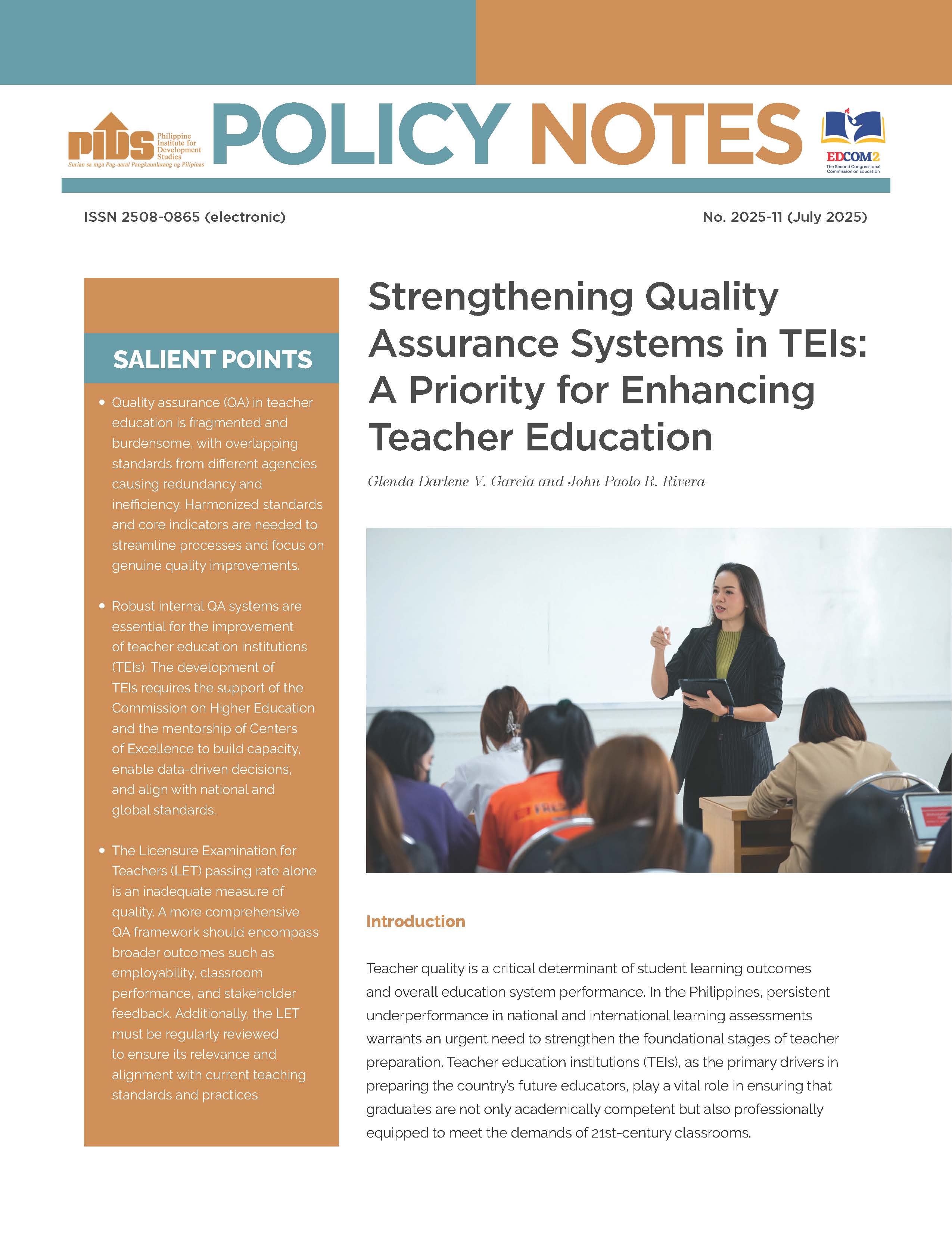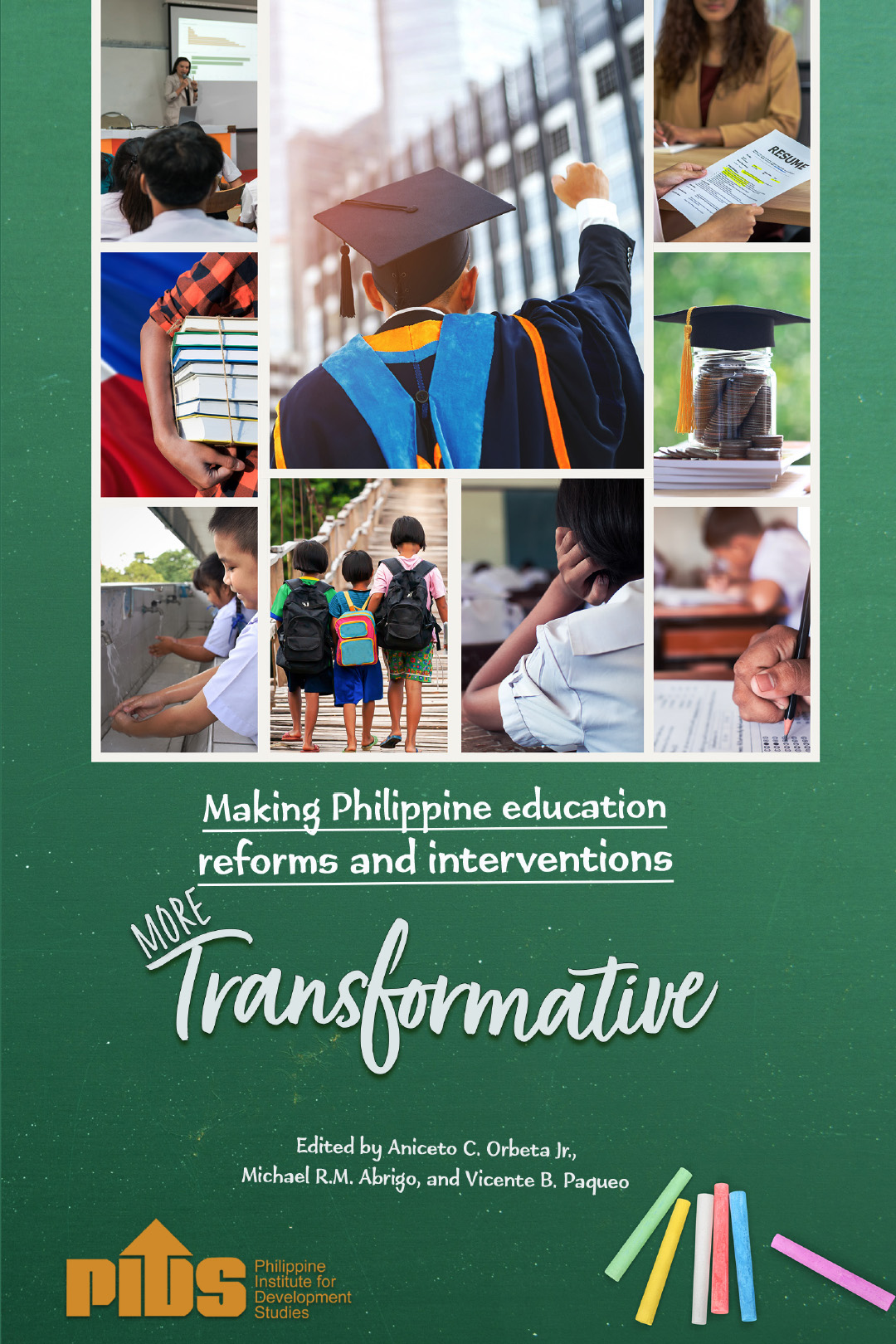State think tank Philippine Institute for Development Studies (PIDS) has scheduled a forum addressing the need to boost the country’s education system through a recent development in distance education called Massive Open Online Courses.
The seminar titled `Distance Education through the Massive Open Online Courses (MOOCs)` is scheduled for Monday, 27 January 2015, from 2:00 p.m. to 4:00 p.m. at the Romulo Hall of the NEDA sa Makati Bldg., 106 Amorsolo St., Legaspi Village, Makati City.
Marito Garcia, PhD, an adviser to the World Bank and currently an adjunct faculty at the Darden Business School, University of Virginia, is the seminar`s main resource speaker. Garcia will discuss new ideas on how MOOCs can be tapped to support service delivery in the education sector.
The MOOCs is an online course aimed at unlimited participation and open access of online users. Apart from available traditional course materials such as filmed lectures, readings, and problem sets, MOOCs are highly interactive providing users support from online communities composed of students, professors, and teaching assistants. MOOCs was first introduced in 2008 and emerged as a popular mode of learning in 2012.
Garcia noted the low world ranking of the Philippine education system by citing the 2003 Trends in International Mathematics and Science Study (TIMSS). Results show the country at 41st place in science and 42nd in math among 45 countries. The country`s ranking has not improved since 1999, reflecting that the Philippine education system is in dire need of improvement. The Philippines has not participated in the 2007 and 2011 surveys.
Garcia, who is also former Lead Economist and Sector Manager for Education in Latin America and the Caribbean at the World Bank, will also present the `Big Results Now` approach to enhance student outcomes, supported by information technology (IT) and MOOCs. Learning at scale is now made possible with the emerging use of IT and the `cloud technology` and by `big data analytics`. His talk will address the challenges in broadband, device, and content, which are key to access, equity, and quality of education.
The seminar will be streamed live via the PIDS website (www.pids.gov.ph).
For inquiries, you may reach us through telephone numbers 893-5705 (c/o Ms. Necy Aquino) and 892-4059 (c/o Ms. Necy Aquino or Ms. Misha Borbon), fax number 893-9589 or e-mail address: naquino@mail.pids.gov.ph.
The seminar titled `Distance Education through the Massive Open Online Courses (MOOCs)` is scheduled for Monday, 27 January 2015, from 2:00 p.m. to 4:00 p.m. at the Romulo Hall of the NEDA sa Makati Bldg., 106 Amorsolo St., Legaspi Village, Makati City.
Marito Garcia, PhD, an adviser to the World Bank and currently an adjunct faculty at the Darden Business School, University of Virginia, is the seminar`s main resource speaker. Garcia will discuss new ideas on how MOOCs can be tapped to support service delivery in the education sector.
The MOOCs is an online course aimed at unlimited participation and open access of online users. Apart from available traditional course materials such as filmed lectures, readings, and problem sets, MOOCs are highly interactive providing users support from online communities composed of students, professors, and teaching assistants. MOOCs was first introduced in 2008 and emerged as a popular mode of learning in 2012.
Garcia noted the low world ranking of the Philippine education system by citing the 2003 Trends in International Mathematics and Science Study (TIMSS). Results show the country at 41st place in science and 42nd in math among 45 countries. The country`s ranking has not improved since 1999, reflecting that the Philippine education system is in dire need of improvement. The Philippines has not participated in the 2007 and 2011 surveys.
Garcia, who is also former Lead Economist and Sector Manager for Education in Latin America and the Caribbean at the World Bank, will also present the `Big Results Now` approach to enhance student outcomes, supported by information technology (IT) and MOOCs. Learning at scale is now made possible with the emerging use of IT and the `cloud technology` and by `big data analytics`. His talk will address the challenges in broadband, device, and content, which are key to access, equity, and quality of education.
The seminar will be streamed live via the PIDS website (www.pids.gov.ph).
For inquiries, you may reach us through telephone numbers 893-5705 (c/o Ms. Necy Aquino) and 892-4059 (c/o Ms. Necy Aquino or Ms. Misha Borbon), fax number 893-9589 or e-mail address: naquino@mail.pids.gov.ph.












